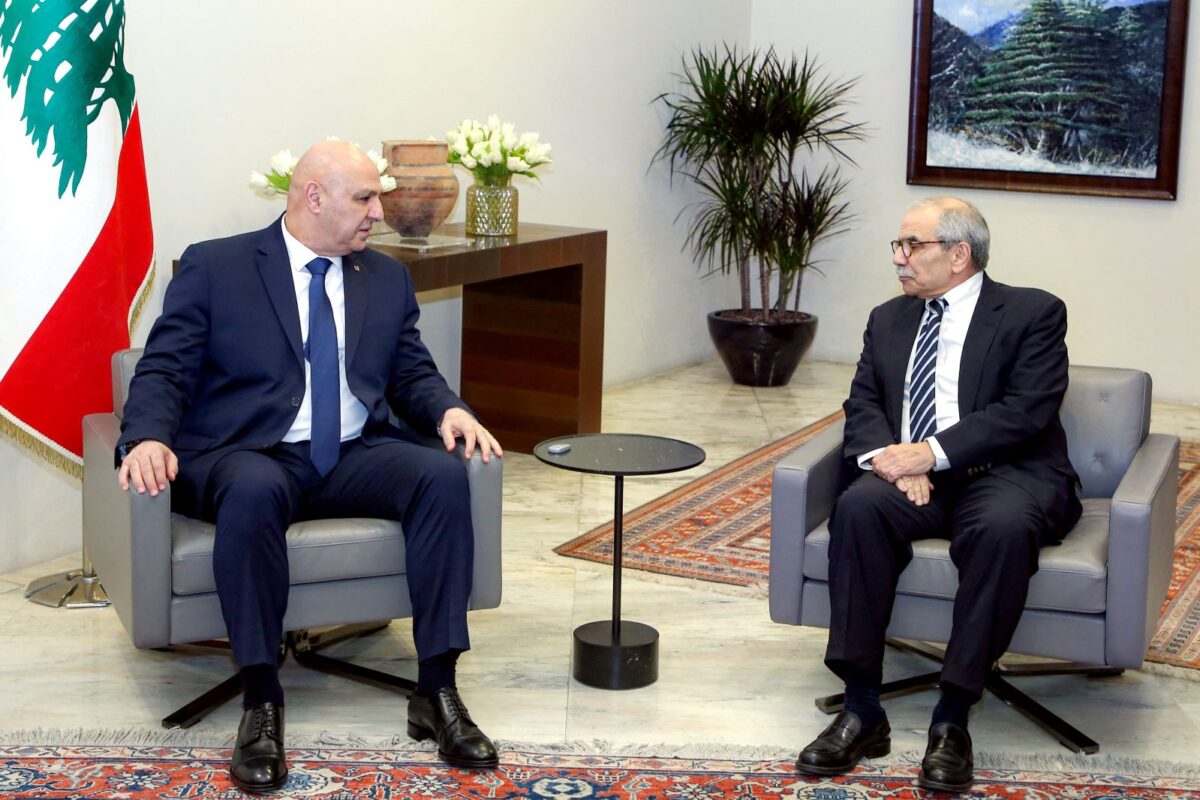
Salam, Aoun, and the long-awaited chance to redefine Lebanese political leadership
Despite being exhausted by years of crises and mismanagement, the Lebanese people have found a glimmer of hope in the partnership of President Joseph Aoun and Prime Minister-designate Dr. Nawaf Salam. The president’s inaugural speech reflected a deep understanding of Lebanon’s challenges and a commitment to addressing them. Complementing this, Dr. Salam affirmed his determination to work within the constitution and in line with the expectations of the Lebanese people. Together, they symbolize a rare alignment of professionalism and accountability, and Salam remains the best choice to lead Lebanon’s cabinet formation at this critical juncture.
However, while the Lebanese people are holding on to hope, one cannot ignore how fragile we are as a nation. Decades of abuse, manipulation, and dishonesty have made mistrust the norm in any governing process. This mistrust is not born out of malice or pessimism but out of deep-seated trauma and disappointment. The people’s skepticism is not only understandable; it is justified. For a nation that hasn’t experienced political honesty in decades, to expect anything different would be unrealistic.
Change-makers and supporters of Dr. Salam who were quick to dismiss criticism of a government forming under immense pressure should understand this more than anyone. People’s mistrust, their doubts, and even their cynicism are products of years of disillusionment. Being surprised by this mistrust is, in itself, surprising. What else can one expect from a society aching for justice and longing for leadership that genuinely reflects their needs?
Transparency as a tool for healing and trust
In a nation as pluralistic and fragmented as Lebanon, where decades of manipulation have eroded trust, transparency is not a luxury – it is a necessity. For the Lebanese people, who have been excluded from genuine political decision-making for far too long, a higher level of transparency in public transactions is essential to begin mending the societal fractures caused by mistrust.
While no government in the world uses a fully public cabinet formation process, there are valuable lessons to be drawn from international practices. In the Netherlands and New Zealand, coalition talks involve public updates, press briefings, and published agreements, ensuring that the people remain informed about critical decisions. Similarly, Iceland’s post-crisis constitutional process demonstrated how transparency and public participation could rebuild trust in a broken system.
Lebanon’s unique challenges may not allow for a direct adoption of these models, but they do provide a foundation for adaptation. Lebanon’s wealth of expertise offers an opportunity to create a tailored approach – one where discussions are not fully public but are accompanied by regular and transparent updates. Such a process would serve multiple purposes: it would expose sectarian demands, hold political actors accountable, and most importantly, re-engage the public by treating them as stakeholders in the nation’s recovery.
For a society battered by years of dishonesty, transparency in government formation is not just about procedural openness – it is a step toward rebuilding the trust that is critical for Lebanon’s future.
A chance to redefine leadership in Lebanon
Dr. Salam has made promising commitments to impartiality and non-partisanship, reassuring the public that he is more than just a mediator. His assertion that the government will be shaped in accordance with the constitution and the people’s aspirations offers a glimmer of hope in a time of deep mistrust. These signals are important, but they are not enough on their own.
If Dr. Salam truly seeks to rebuild trust in Lebanon’s governance, he must go further. Transparency should be the cornerstone of his approach – not just as a gesture, but as an actionable framework. This could begin with publicly outlining the guiding principles of his cabinet formation, setting clear expectations, and regularly communicating updates on progress. By doing so, he can bypass the noise of political elites and engage directly with the people, fostering accountability and rebuilding confidence in the process.
In addition, Salam should take actionable steps to establish a new standard for governance. This includes introducing mechanisms to expose sectarian demands, ensuring that portfolios are assigned based on competence rather than political favoritism, and committing to policies that prioritize national recovery over partisan gain. By creating a transparent and accountable process, Salam has the chance to shift the narrative, not just for this government but for the future of Lebanon’s political culture.
The Lebanese people deserve a government that represents their needs, not the entrenched interests of a few. Dr. Salam’s leadership can set a transformative precedent if he leverages transparency and openness as tools to rebuild the nation’s trust. This is an opportunity to form a government that reshapes how governance is practiced in Lebanon.
Ramzi Abou Ismail is a political psychologist and researcher at the University of Kent.
The views in this story reflect those of the author alone and do not necessarily reflect the beliefs of NOW.








